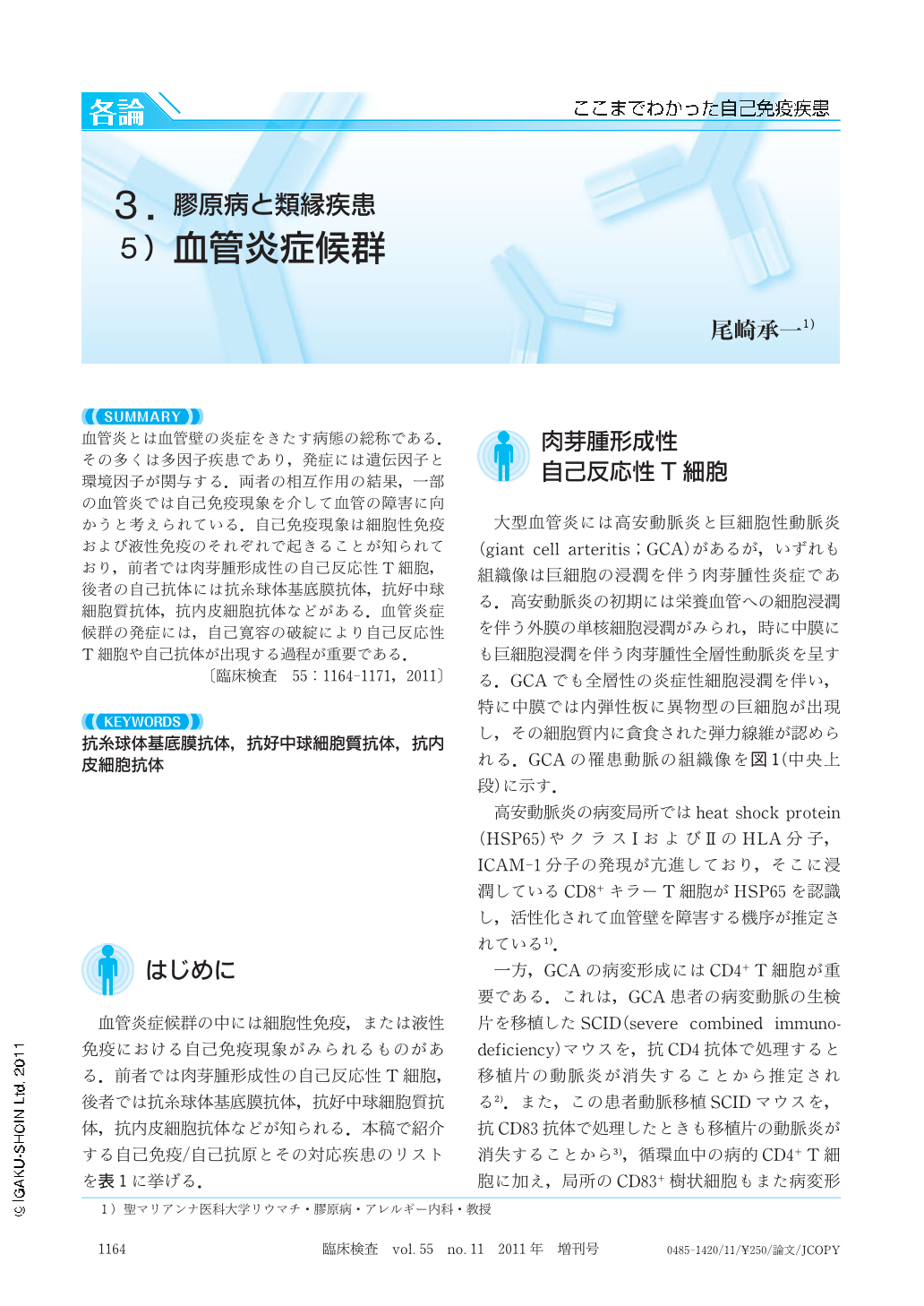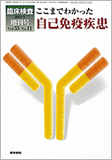Japanese
English
- 有料閲覧
- Abstract 文献概要
- 1ページ目 Look Inside
- 参考文献 Reference
血管炎とは血管壁の炎症をきたす病態の総称である.その多くは多因子疾患であり,発症には遺伝因子と環境因子が関与する.両者の相互作用の結果,一部の血管炎では自己免疫現象を介して血管の障害に向かうと考えられている.自己免疫現象は細胞性免疫および液性免疫のそれぞれで起きることが知られており,前者では肉芽腫形成性の自己反応性T細胞,後者の自己抗体には抗糸球体基底膜抗体,抗好中球細胞質抗体,抗内皮細胞抗体などがある.血管炎症候群の発症には,自己寛容の破綻により自己反応性T細胞や自己抗体が出現する過程が重要である.
Vasculitis syndromes primarily aggravate the inflammation of vessel walls. Most of the syndromes are multi-factorial, and the pathogenesis requires the interactions of genetic and environmental factors. Those pathological steps may induce an autoimmune phenomenon, and in turn lead to immunological attack of the vessel walls. Both cellular and humoral immune systems are involved in the pathogenesis : autoreactive T lymphocytes and autoantibody-producing B lymphocytes with specificities for the glomerular basement membrane, neutrophil cytoplasmic antigens or endothelial cell antigens. The breakdown of tolerance to these autoantigens may result in development of some vasculitis syndromes.

Copyright © 2011, Igaku-Shoin Ltd. All rights reserved.


